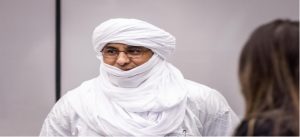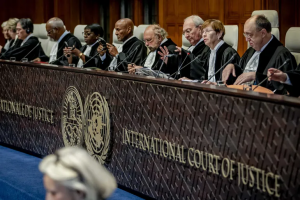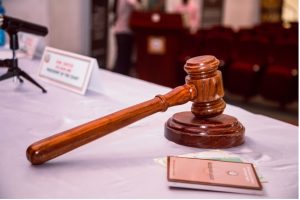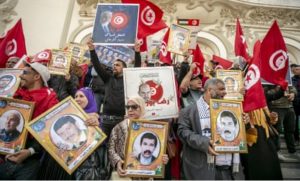By: Joo Young Lee
Journal of Global Rights and Organizations, Associate Articles Editor
THE HAGUE, The Netherlands – On January 15, 2024, Trial Chamber X of the International Criminal Court (ICC) postponed delivery of its verdict for The Prosecutor v. Al Hassan Ag Abdoul Aziz Ag Mohamed Ag Mahmoud (hereinafter “Al Hassan”) pursuant to article 74 of the Rome Statute.
 |
Al Hassan Ag Abdoul Aziz Ag Mohamed Ag Mahmoud is accused of perpetrating war crimes and crimes against humanity in Timbuktu, Mali. He is facing charges of persecution based on religious and gender grounds, rape, torture, sexual slavery, and forced marriages that occurred between April 2012 and January 2013. The delivery of the judgment by the ICC was originally set for January 18, 2024, and a new date will be announced in due course.
Notably, the Al Hassan case marks the ICC’s first prosecution of the crime against humanity of persecution on grounds of gender pursuant to the Rome Statute. The prosecution contends that Al Hassan and his group specifically targeted women and girls for breaking a strict dress code, restrictions on freedom of movement, and rules on segregation of the sexes. According to prosecutors, Al Hassan led a police force created by the al Qaeda-linked Ansar Dine group that tormented Timbuktu, particularly targeting women who faced rape, forced marriages and sexual slavery.
The United Nations’ Women, Peace, and Security (WPS) agenda recognizes sexual violence as a weapon of war and acknowledges that it can amount to international crimes, calling for enhanced criminal accountability.
During a hearing on May 9, 2022, the defense argued that faced with dire circumstances, Al Hasan became involved with armed groups as a survival strategy. The defense maintained that Al Hasan was wrongly selected for prosecution and portrayed him as trying to maintain order in a chaotic situation in Timbuktu following the rebel takeover. The defense also argued that Al Hasan’s role in the conflict was too minor to warrant charges at the ICC for crimes against humanity.
Closing statements occurred before the ICC between May 23 and 25, 2023. Trial Chamber X of the ICC will deliver its decision on conviction or acquittal pursuant to article 74 of the Rome Statute. The Chamber bases its decision only on the applicable law and on evidence submitted before it at the trial.
For further information, please see:
Al Jazeera – ICC prosecutors: Mali rebel “enthusiastic” war crimes perpetrator – 23 May 2023
Courthouse News Service – Closing arguments begin in trial over Mali war crimes – 23 May 2023
Diplomat – ICC Trial Chamber X to deliberate on the Al Hassan case – 25 May 2023
ICC – Al Hassan case: Trial Chamber X postpones delivery of judgment – 15 Jan. 2024
ICC – Trial Judgment in Al Hassan case on 18 January 2024 – Practical information – 10 Jan. 2024
ICC – Al Hassan case: ICC Trial Chamber X to deliver Trial Judgment on 18 January 2024 – 6 Dec. 2023
ICC – ICC Trial Chamber X to deliberate on the Al Hassan case – 25 May 2023



